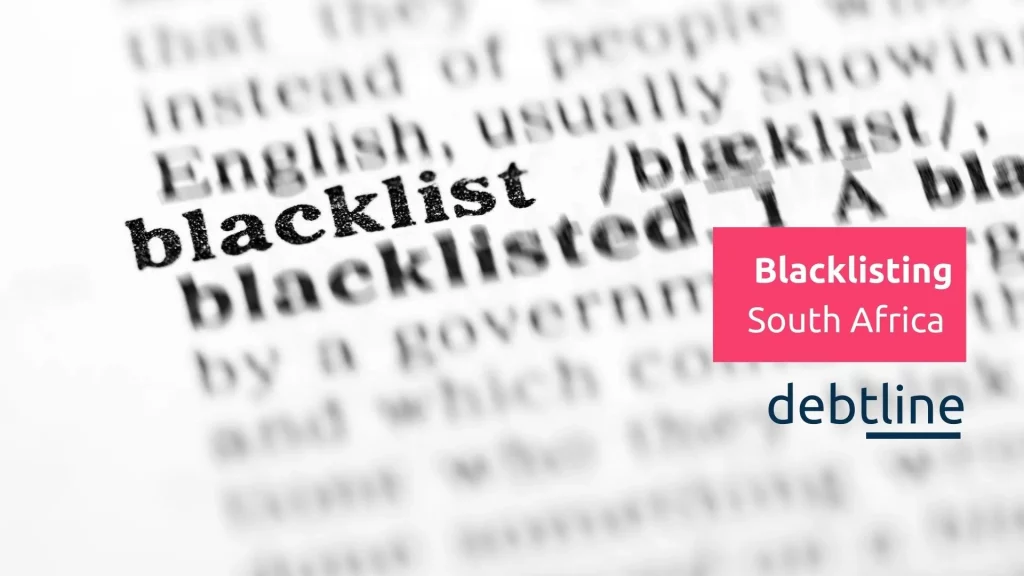Demystifying what blacklisting means in South Africa

The fear of blacklisting in South Africa can cause people to make harmful decisions regarding their financial well-being. Join us as we delve into the realities of managing your South African credit score and its relation to blacklisting. We also look at what blacklisting means and the actions you can take to clear your name and re-establish your financial wellness.
What does blacklisting mean in South Africa?
In South Africa, the term “blacklisting,” refers to any time a consumer is refused an interest-bearing loan, or credit, due to having a negative reputation with creditors who use credit bureau services.
On a practical level, it is an outdated term that the National Credit Regulator (NCR) no longer uses. It originated when your credit score was assumed to be positive and negative entries were deducted from your overall rating. Modern credit assessments take a balanced profile of negative and positive entries into account.
Read: Credit scoring explained and how to improve your credit score
This balanced risk assessment means that while a low credit score can result in the rejection of loan applications, it is not a financial death sentence. Instead, it is a short-term view of your financial health. Stabilising and correcting it through debt review is possible.
How long does blacklisting last in South Africa?
Often when consumers refer to being blacklisted, they are speaking of an official court judgement that seeks to see them honour their outstanding debts. In cases where the defaulted loan amounts exceed R100,000, it will be up to the High Court to pass judgement. Such a judgement will appear on your credit score for a fixed five-year period, regardless of how soon you pay off the court-ordered amount.
Where the debt is less than R100,000, the case will fall under the Magistrates Court and will appear on your credit score for a maximum of five years or until you can repay the outstanding loan amounts.
How do I check if I’m blacklisted in South Africa?
The simplest method for checking the current status of your creditworthiness is to request a free credit report. You are legally entitled to one free annual report as a South African citizen. We recommend contacting reputable credit bureaus such as TransUnion, Experian or Compuscan to claim your free credit check.
How do I remove blacklisting from my name?
With credit bureaus working with a more balanced scale, all blacklisting means is that there are a few bad decisions with creditors in your past which need to be addressed. The good news is that with the correct debt rehabilitation solution and patience, tipping the scale back towards a positive rating is a reality.
The simplest way to shift your credit score from a positive to a negative is to pay off any outstanding debts. Doing so will allow your credit score to be positively adjusted within 20 days of the final payment.
A High Court judgement will require you to pay off the debt amount and work with a debt counsellor to have the court remove the order before the end of the five-year period.
In both instances, Debtline is perfectly positioned to help you reduce debt, consolidate your monthly payments into manageable figures, and address the legalities surrounding clearing your name once it is repaid.
How to avoid blacklisting?
At Debtline, we pride ourselves on having helped thousands of South Africans take control of their financial well-being. We have trained debt counsellors waiting to help you assess your financial health and put together a personal plan which can include debt reduction, consolidated payment plans and legal support for reckless loans.
Speak to us today about becoming debt free and avoiding any mention of blacklisting from the start.